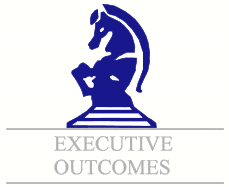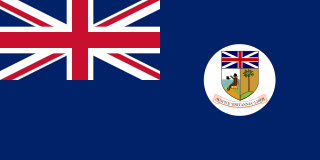
Sierra Leone, officially the Republic of Sierra Leone, is a country on the southwest coast of West Africa. It shares its southeastern border with Liberia and is bordered by Guinea to the north. With a land area of 71,740 km2 (27,699 sq mi), Sierra Leone has a tropical climate and with a variety of environments ranging from savannas to rainforests. According to the 2015 census, Sierra Leone has a population of 7,092,113, with Freetown serving as both the capital and largest city. The country is divided into five administrative regions, which are further subdivided into 16 districts.
Sierra Leone first became inhabited by indigenous African peoples at least 2,500 years ago. The Limba were the first tribe known to inhabit Sierra Leone. The dense tropical rainforest partially isolated the region from other West African cultures, and it became a refuge for peoples escaping violence and jihads. Sierra Leone was named by Portuguese explorer Pedro de Sintra, who mapped the region in 1462. The Freetown estuary provided a good natural harbour for ships to shelter and replenish drinking water, and gained more international attention as coastal and trans-Atlantic trade supplanted trans-Saharan trade.

The Republic of Sierra Leone Armed Forces are the armed forces of Sierra Leone, responsible for the territorial security of Sierra Leone's borders and defending the national interests of Sierra Leone, within the framework of the 1991 Sierra Leone Constitution and International laws. The armed forces were formed after independence in 1961, on the basis of elements of the former British Royal West African Frontier Force, then present in the Sierra Leone Colony and Protectorate.
Valentine Esegragbo Melvine Strasser is a former Sierra Leonean military officer who served as head of state of Sierra Leone from 1992 to 1996. He became the world's youngest Head of State in 1992, seizing power three days after his 25th birthday.

Executive Outcomes is a private military company (PMC) founded in South Africa in 1989 by Eeben Barlow, a former lieutenant-colonel of the South African Defence Force. It later became part of the South African-based holding company Strategic Resource Corporation. The company was reestablished in 2020.

The United Nations Mission in Sierra Leone (UNAMSIL) was a United Nations peacekeeping operation in Sierra Leone from 1999 to 2006. It was created by the United Nations Security Council in October 1999 to help with the implementation of the Lomé Peace Accord, an agreement intended to end the Sierra Leonean civil war. UNAMSIL expanded in size several times in 2000 and 2001. It concluded its mandate at the end of 2005, the Security Council having declared that its mission was complete.

Koidu Town is the capital and largest city of the Kono District in the Eastern Province of Sierra Leone. Its population is 128,030 based on the 2015 census. It is the fifth largest city in Sierra Leone by population, after Freetown, Kenema, Bo and Makeni. It lies approximately 280 miles east of Freetown, and about 60 miles north of Kenema.

Julius Maada Wonie Bio is a Sierra Leonean politician who has served as president of Sierra Leone since 4 April 2018. He is a retired brigadier in the Sierra Leone Army and was the military head of state of Sierra Leone from 16 January 1996 to 29 March 1996, in a military junta government known as the National Provisional Ruling Council (NPRC).
The Sierra Leone Civil War (1991–2002), or the Sierra Leonean Civil War, was a civil war in Sierra Leone that began on 23 March 1991 when the Revolutionary United Front (RUF), with support from the special forces of Liberian dictator Charles Taylor's National Patriotic Front of Liberia (NPFL), intervened in Sierra Leone in an attempt to overthrow the Joseph Momoh government. The resulting civil war lasted almost 11 years, and had over 50,000, up to 70,000, casualties in total; an estimated 2.5 million people were displaced during the conflict.
Anthony Leslie Rowland "Tony" Buckingham is a former North Sea oil-rig diver and is currently an oil industry executive with a significant shareholding in Heritage Oil Corporation. Heritage is listed on the Toronto Stock Exchange since 1999. In 2008, Heritage was listed on the London Stock Exchange. Buckingham's direct and indirect shareholding is estimated to represent 33% of Heritage. This share was reduced in November 2007 via a share placement made through JP Morgan and Canaccord.
Emmanuel Bankole Timothy was a Sierra Leonean journalist. He was also an author and wrote biographies of Albert Margai, prime minister of Sierra Leone (1964–67), and Kwame Nkrumah, president of Ghana (1960–66). Timothy served for many years as editor of the Daily Graphic in Accra.

The United Nations Peacebuilding Commission (PBC) is a United Nations intergovernmental advisory body of both the General Assembly and the Security Council that supports peace efforts in conflict affected countries. A key addition to the capacity of the international community in the broad peace agenda, it was established in 2005 with the passage of both A/RES/60/180 and S/RES/1645 Mr. Sérgio França Danese (Brazil) is the incumbent chair of the PBC.

Alhaji Samuel Sidique Sam-Sumana is a Sierra Leonean politician who was the Vice President of Sierra Leone from September 17, 2007, to March 17, 2015. Sam-Sumana stood as the vice-presidential candidate of the All People's Congress (APC) in the 2007 presidential election, alongside presidential candidate Ernest Bai Koroma. The APC ticket defeated the Sierra Leone People's Party (SLPP) presidential candidate Solomon Berewa and vice presidential candidate Momodou Koroma. Sam-Sumana took office as vice president on September 17, 2007.

Sierra Leone – United States relations are bilateral relations between Sierra Leone and the United States.

United Nations Security Council resolution 1289, adopted unanimously on 7 February 2000, after recalling resolutions 1171 (1998), 1181 (1998), 1231 (1999), 1260 (1999), 1265 (1999) and 1270 (1999) on the situation in Sierra Leone, the Council extended the mandate of the United Nations Mission in Sierra Leone (UNAMSIL) for a period of six months and expanded its military component.

Elizabeth II was Queen of Sierra Leone from 1961 to 1971, when Sierra Leone was an independent constitutional monarchy. She was also the monarch of other Commonwealth realms, including the United Kingdom. Her constitutional roles in Sierra Leone were mostly delegated to the governor-general of Sierra Leone.

India–Sierra Leone relations refers to the international relations that exist between India and Sierra Leone. India maintains a High Commission in Freetown. Sierra Leone does not have a resident diplomatic mission in India. The Sierra Leonean embassy in Abu Dhabi, United Arab Emirates is accredited to India.

The Colony and Protectorate of Sierra Leone was the British colonial administration in Sierra Leone from 1808 to 1961, part of the British Empire from the abolitionism era until the decolonisation era. The Crown colony, which included the area surrounding Freetown, was established in 1808. The protectorate was established in 1896 and included the interior of what is today known as Sierra Leone.

Sierra Leone–Yugoslavia relations were historical foreign relations between Sierra Leone and now split-up Socialist Federal Republic of Yugoslavia. Two countries established formal diplomatic relations in 1961. Both countries were member states of the Non-Aligned Movement and cooperated in the United Nations in bridging the Cold War divisions. Two countries reached the peak of their diplomatic relations in cooperation on the issue of Rhodesia.

Richard Konteh is a Sierra Leonean educator, public servant, and businessman.















